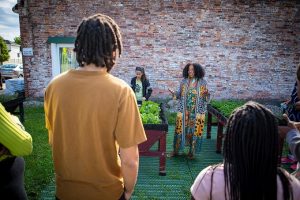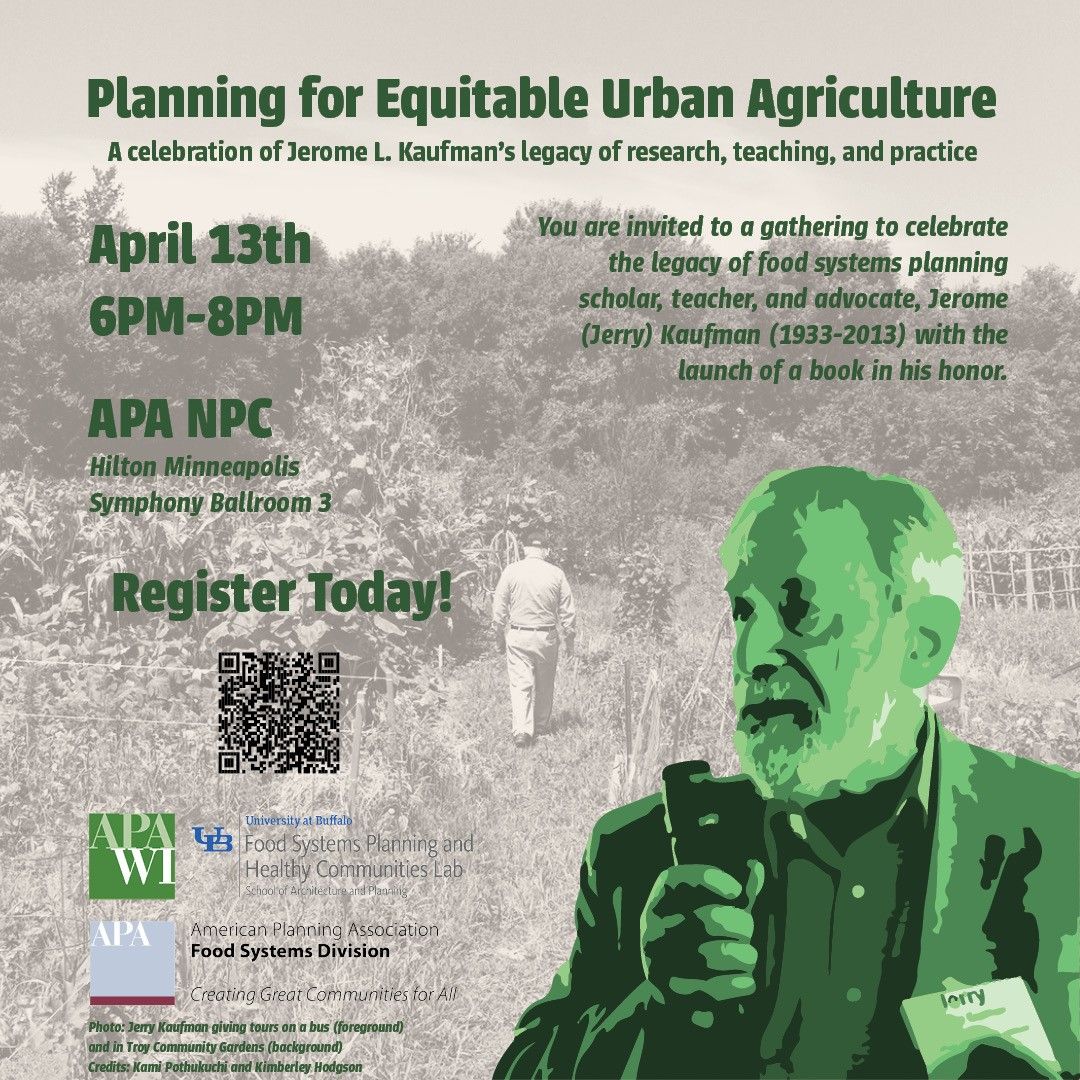
An emeritus professor at the University of Wisconsin-Madison and a founding member of the APA Food Interest Group (now APA FOOD), Jerry blended the roles of activist, practitioner (of planning), scholar, and teacher throughout his professional life. Principles of fairness and justice were a central tenet of Jerry’s life and work. Jerry wrote about urban education and race, central city planning, gender in planning, ethics — and, later in his life, food systems. During his lifetime, Jerry did not publish writings that explicitly connected planning ethics with planning for food systems, though there is plenty of evidence that this link nourished his scholarship, teaching, and actions on food systems. The editors of the book surmise that Jerry’s early preoccupation with planning ethics influenced his openness toward food systems, a topic that was largely overlooked in formal urban and regional planning practice. Now, more than 50 individuals – many of whom he trained and worked with – celebrate his legacy by exploring questions of ethics and food systems in this new book. Chapters are written by teams of scholars, planning practitioners, and community advocates to provide a rounded view.
Samina Raja: We hope that the book will be informative for city governments (and policymakers and planning staff) who are aiming to create policy landscapes to support equitable urban agriculture.
Thank you to my fellow co-editors, the 50+ contributors, and hundreds of supporters who made this book possible in Jerry’s honor.
BOOK RECEPTION. You are invited to a book launch reception honoring Jerry Kaufman at the national American Planning Association conference on April 13, 2024. Registration is required (https://lnkd.in/gcrAFis8).
BOOK ACCESS. Thanks to the generosity of multiple funders, including the Foundation for Food and Agricultural Research, University at Buffalo, the University of Wisconsin-Madison, University of Washingtom-Seattle, WNY Foundation and others, the book
is Open Access and can be downloaded from the publisher’s website at: https://link.springer.com/book/10.1007/978-3-031-32076-7.
Co-editors are: Marcia Caton Campbell, Alexandra Judelsohn, Branden Born, and Alfonso Morales.
Authors and contributors to the “Kaufman Book” include: Shantell Bingham, Sarah Buzogany, Laine Cidlowski, AICP, Abby Cocke, Nevin Cohen, Nick DeMarsh, Tanya Denckla Cobb, Jill Clark, Holly Freishtat, Emmanuel Frimpong Boamah, Kelsey Gosch, Domonique S. Griffin, MUP, Kimberley Hodgson, MURP, MS, AICP, RD, Sylvia Kelly, Gabriella Hall, Enjoli Dominique Hall,Aiden Irish, Ph.D., Sydney Jones, Micaela Lipman, Kami Pothukuchi, Yeeli Mui, Subhashni Raj, PhD, Carol E. Ramos-Gerena, Anusuya Rangarajan, Molly Riordan, Wayne Roberts, Shirley Sherrod, Avery Q. Sirwatka, Kristopher Walton, MUP, Alexander J. Wright JD, Domenic Vitiello, and others. Professor Emeritus Beth Howe and Jerry’s son, writer Dan Kaufman, wrote the Preface for the book.
QUESTIONS? Reach out to APA FOOD Division at foodsystemsplanning@gmail.com.
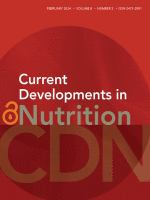 In this article in ELSEVIER, the authors describe how the use of social infrastructures impacts food security and nutrition equity in a majority Black and urban community in the United States.
In this article in ELSEVIER, the authors describe how the use of social infrastructures impacts food security and nutrition equity in a majority Black and urban community in the United States.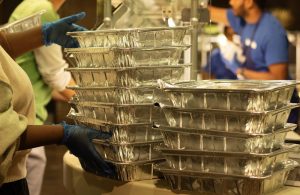
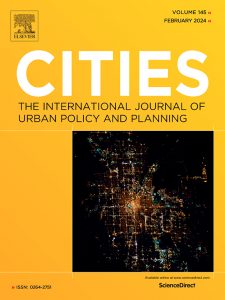
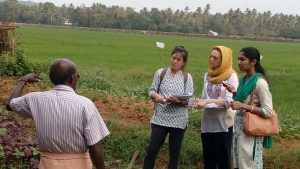
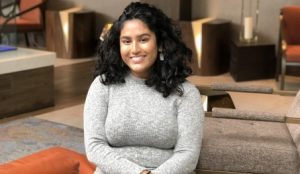

 In this article, Carol E. Ramos-Gerena asks: What do people know by becoming food policy literate? And who benefits or loses when a particular definition of food policy literacy becomes the norm? This paper conceptualizes critical food policy literacy for municipal food policy transformations. Click here to read the full article: https://www.foodsystemsjournal.org/index.php/fsj/article/view/1135/1106
In this article, Carol E. Ramos-Gerena asks: What do people know by becoming food policy literate? And who benefits or loses when a particular definition of food policy literacy becomes the norm? This paper conceptualizes critical food policy literacy for municipal food policy transformations. Click here to read the full article: https://www.foodsystemsjournal.org/index.php/fsj/article/view/1135/1106